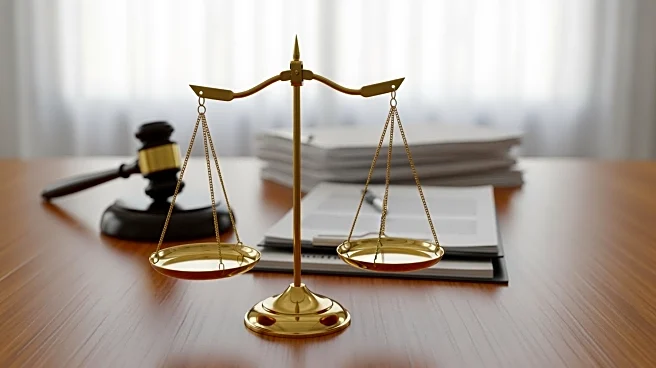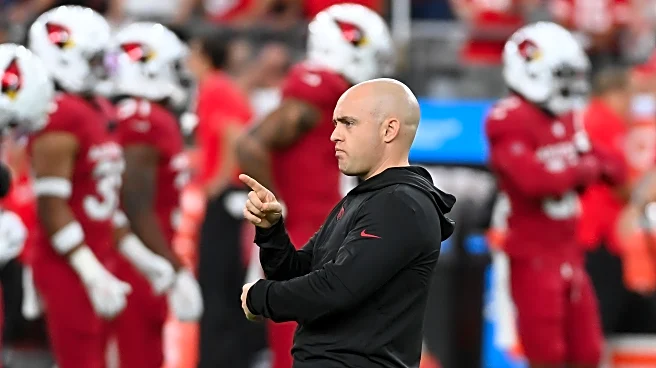What's Happening?
The Supreme Court is set to hear a significant case regarding the legality of tariffs imposed by President Trump. These tariffs are a central component of Trump's economic strategy, which he has used as a tool for trade negotiations and conflict resolution.
The case will examine whether Trump has overstepped his authority in imposing these tariffs, which have been a contentious issue. The tariffs in question have been applied to various countries and are part of Trump's broader economic agenda. The court's decision will focus on whether these tariffs are constitutional, as the power to impose tariffs is traditionally held by Congress, although some authority has been delegated to the president under certain laws.
Why It's Important?
The outcome of this case could have significant implications for U.S. economic policy and the balance of power between the executive and legislative branches. If the Supreme Court rules against the tariffs, it could lead to a reduction in the average tax on imports, potentially lowering costs for American consumers and businesses. However, if the tariffs are upheld, it could reinforce the president's ability to unilaterally impose tariffs, affecting international trade relations and domestic economic conditions. The tariffs have already contributed to increased prices for imported goods, impacting inflation and manufacturing jobs in the U.S. The decision could also set a precedent for future presidential powers in economic matters.
What's Next?
Should the Supreme Court strike down the tariffs, the average import tax could decrease significantly. However, President Trump might still have the ability to reimpose similar tariffs using other legal statutes, though these may come with additional restrictions. Businesses affected by the tariffs could potentially seek refunds, leading to further economic adjustments. The decision is likely to prompt reactions from various stakeholders, including businesses, trade partners, and political leaders, as they assess the implications for trade policy and economic strategy.
Beyond the Headlines
The case highlights the ongoing debate over the scope of presidential powers in economic policy. It raises questions about the balance of power between the executive and legislative branches and the potential for future legal challenges. The use of tariffs as a negotiation tool also underscores the complexities of modern trade agreements, which often involve non-binding frameworks and evolving terms. The decision could influence how future administrations approach trade policy and economic diplomacy.














